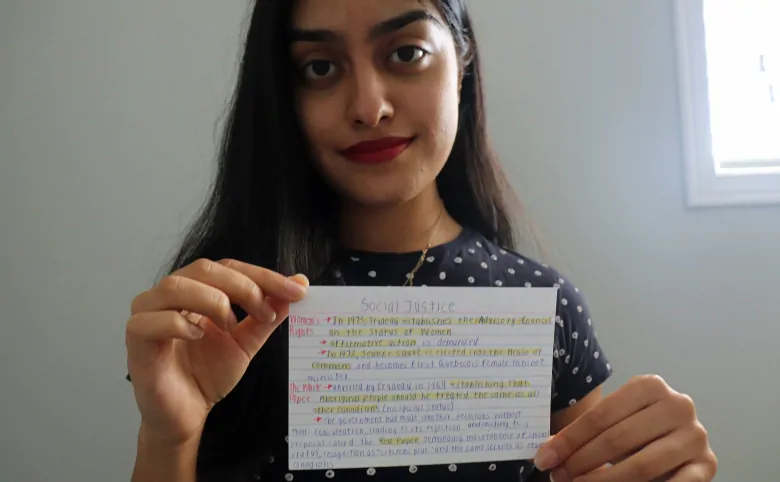Grade 10 history class barely touched on BIPOC issues and perspectives, writes Toronto high school student Nasima Fancy.

This column is an opinion by Nasima Fancy, a high school student in Toronto. For more information about CBC’s Opinion section, please see the FAQ.
I felt dissatisfied as I neared the end of my Grade 10 history course earlier this year. As somebody who enjoys learning about Canadian history on my own, what my textbook and curriculum outlined wasn’t nearly good enough. And given the protests across the country supporting the Black Lives Matter movement that have been shining a light on systemic racism in Canada, this felt even more problematic.
There are simply too many important events and aspects of historical Canadian life that weren’t mentioned or emphasized nearly enough in high school history class.
Ontario’s Grade 10 curriculum takes students from the start of the First World War to present day. However, it’s up to individual teachers and textbook writers to decide what examples from this time period they choose to include in their lessons. Restraints on time, textbook page counts, and general bias make it quite easy to avoid historical events that are inclusive of Black, Indigenous, and People of Colour (BIPOC) experiences.
These events include appalling examples of cultural and social segregation in Canada, as well as the Sixties Scoop and Africville. If we don’t tackle these topics in school, then we are holding our society back from learning not just about history but also from history, and that’s how racism perpetuates.

We need to rethink how we teach history. Here are three suggestions.
1. Teaching students historical events beyond their political significance
Too often, historical education is limited to the role of pioneers, settlers, and the governments they eventually formed. Students must be taught about historical events from perspectives that go beyond their political sig

